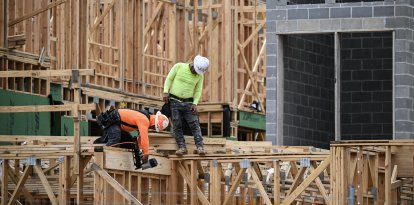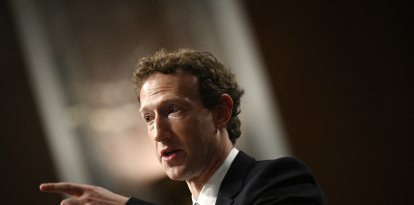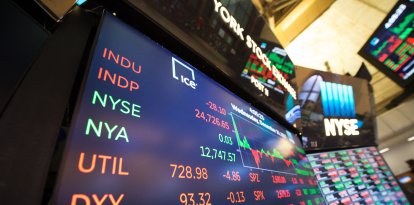White House changes definition of "recession" ahead of election
Two consecutive quarters of falling GDP is considered to constitute a "recession," but the White House wants another criterion to be used.

La confluencia de Wall Street y Nassau, en Nueva York, donde se encuentra el NYSE. Foto: Mauricio Uribarri (Flickr).
President Joe Biden does not want the word "recession" circulating in the media with the midterm elections just months away. President Biden has told reporters, "In my opinion, we are not going into a recession." He considers that "the employment rate continues to be one of the lowest we have ever had in history. It is in the 3.6% area. We still see people investing." He believes that accelerated growth will moderate, "but I don't think we will, God willing, see a recession".
Janey Yellen recently stated that we are not living in a recession. But indicators point to the contrary. While, on the one hand, consumption and employment are performing very well, on the other hand, activity is slowing down and beginning to contract. GDP declined 1.6% in the first quarter, and the Atlanta Fed expects it to decline again in the second quarter.
Who says what a recession is?
This would mean that GDP contracts for two consecutive quarters, which is a recession according to one of the most widely used criteria. But in reality there is no definition of what is the point in a crisis from which one can speak of a "recession".
Currently, the body in charge of signaling when there is a recession is the Economic Cycle Committee. It consists of a group of eight economists chosen by NBER, a private non-profit association. Current members include Robert Hall and Christina Romer, and past members include Ben Bernanke and Gregory Mankiw. The committee defines "recession" in very ambiguous terms: "A significant drop in economic activity that is widespread throughout the country and lasts for more than a few months". The committee's job is precisely to see in the multiple economic data whether they fit that definition at any given time.
White House denies that there is a recession
The White House blog has published a post dealing with this issue, which seeks to prevent the realization that GDP is falling two quarters in a row from causing the press to talk about a "recession". "What is a recession?" the blog asks. "Although some argue that two consecutive quarters of falling real GDP constitutes a recession, that is not the official definition or the way economists assess the state of the business cycle," the website notes.
He adds that economists "rely on a comprehensive analysis of data, including the labor market, consumer and business spending, industrial production and income." He concludes, "Based on these data, the decline in GDP in the first quarter of this year - even if followed by another decline in GDP in the second quarter - is unlikely to signal a recession."
The publication, which has an official status, offers its own interpretation of the data to conclude that there is no recession. A drop in production of 1.6% is not "significant". Moreover, it is partly due to the drop in exports, which indicates weakness outside, not inside. Consumption is growing by 3.0%, the blog reminds us, and wages by 4.7%.

























